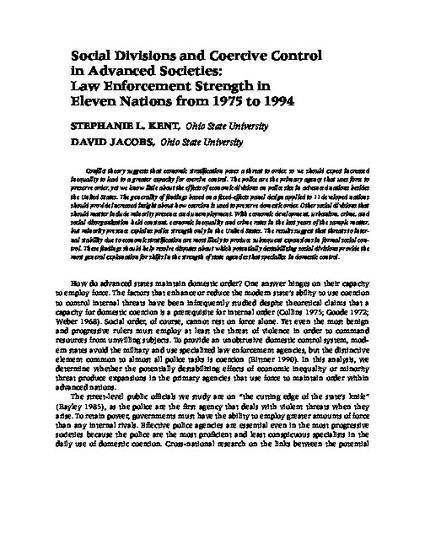
Conflict theory suggests that economic stratification poses a threat to order, so we should expect increased inequality to lead to a greater capacity for coercive control. The police are the primary agency that uses force to preserve order, yet we know little about the effects of economic divisions on police size in advanced nations besides the United States. The generality of findings based on a fixed-effects panel design applied to 11 developed nations should provide increased insight about how coercion is used to preserve domestic order. Other social divisions that should matter include minority presence and unemployment. With economic development, urbanism, crime, and social disorganization held constant, economic inequality and crime rates in the last years of the sample matter, but minority presence explains police strength only in the United States. The results suggest that threats to internal stability due to economic stratification are most likely to produce subsequent expansions in formal social control. These findings should help resolve disputes about which potentially destabilizing social divisions provide the most general explanation for shifts in the strength of state agencies that specialize in domestic control.
Available at: http://works.bepress.com/stephanie_kent/11/
